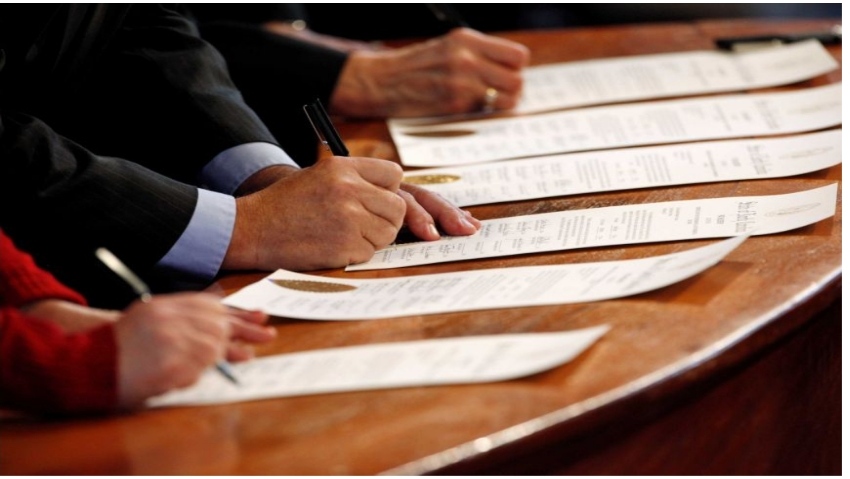US election 2020 : What is the electoral college and how does it work?

The US president is elected through the electoral college system.
Americans do not vote directly for their president.
Rather, the president and vice-president of the United States are elected through a system called the electoral college.
What exactly is the electoral college?
The word college here refers to a group of people. That group is made up of 538 people who are formal electors.
Each elector represents one vote in the electoral college.
That means a majority of 270 electoral votes is required to elect the president.
All 50 states and the District of Columbia are allowed electoral votes based on their population.
So technically, Americans cast votes for electors, not the presidential candidates themselves.
Who can be a formal elector?
Electors are typically party loyalists who pledge to support the candidate who gets the most votes in their state.
The US Constitution says “that no senator or representative, or person holding an office of trust or profit under the United States, shall be appointed an elector” (in other words, you can’t be on the government payroll).
There’s also a two-part process for selecting state electors.
Under US federal law, the first part is that state political parties nominate electors, either at party conventions or by a central committee vote.
The second part of the process happens during the general election. Voters cast ballots in favour of candidates, but technically they are voting to select their state’s electors.
In some states, the names of those electors appear on the ballots beneath the names of the candidates.
What about winning the popular vote?
The candidate who wins each state’s popular vote typically earns that state’s electors.
But even if a presidential candidate wins the national popular vote, that doesn’t mean the same result will be reflected by the electoral college.
That’s what happened in the last presidential election back in 2016 — when Donald Trump lost the national popular vote to Hillary Clinton but secured 304 electoral votes to her 227.
Former president George W Bush won the 2000 election despite losing the popular vote too.
Can electors go rogue?
Yes. But it’s usually rare.
That said, in 2016 seven of the 538 electors cast ballots for someone other than their state’s popular vote winner, an unusually high number.
There are also penalties for rogue electors.
Thirty-two states and the District of Columbia have laws intended to control rogue electors, or “faithless electors”.
Some provide a financial penalty for a rogue vote, while others call for the vote to be cancelled and the elector replaced.
Why does the US keep the electoral college system rather than a direct voting system?
The electoral college is mandated in the constitution, so abolishing it would require a constitutional amendment.
Such amendments require two-thirds approval from both the House and Senate and ratification by the states, or a constitutional convention called by two-thirds of state legislatures.
Republicans, who benefited from the electoral college in the 2000 and 2016 elections, are unlikely to back such an amendment.
Individual states do have some freedom to change how their electors are chosen, and experts have floated proposals for reforming the system without a constitutional amendment.
Under one proposal, states would form a compact and agree to award all their electoral votes to whichever candidate wins the nationwide popular vote.




